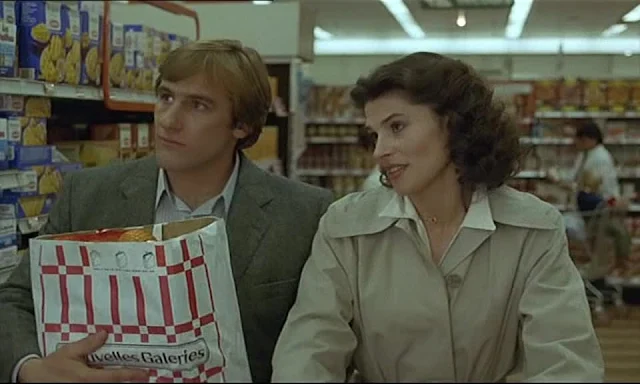1900 (Bernardo Bertolucci, 1976)
Cast: Robert De Niro, Gérard Depardieu, Donald Sutherland, Dominique Sanda, Laura Betti, Burt Lancaster, Sterling Hayden, Stefania Sandrelli, Alida Valli, Romolo Valli, Paolo Pavesi, Roberto Maccanti. Screenplay: Franco Arcalli, Giuseppe Bertolucci, Bernardo Bertolucci. Cinematography: Vittorio Storaro. Production design: Maria Paola Maino, Gianni Quaranta. Film editing: Franco Arcalli. Music: Ennio Morricone.
In his attempt at an epic, Bernardo Bertolucci gives us many new and arresting things, but none perhaps more startling -- and ultimately more fatal to the film -- than Robert De Niro playing a passive weakling. The actor known for such aggressors as young Vito Corleone, for Travis Bickle, Jake LaMotta, even Rupert Pupkin, seems crucially miscast as the padrone of an Italian estate who can't bring himself to take sides in the conflict between communists and fascists. The De Niro smirk is still there, but it doesn't seem to fit on the face of Alfredo Berlinghieri, who waffles even when his best friend, his boyhood companion Olmo Dalcò (Gérard Depardieu), is threatened by the fascist overseer Attila Mellanchini, played -- not to say overplayed -- by Donald Sutherland. Bertolucci crafts a relationship between Alfredo and Olmo that goes beyond bromance and somehow persists for a lifetime. They are nominally twins, born on the same day in 1901 as the legitimate son of the landowner and the bastard of a peasant on his estate. The film begins with the end of World War II and the routing of the fascists, then flashes back to their birth and boyhood, skips ahead to the end of World War I, the rise and fall of fascism, and concludes with a coda in which the elderly Alfredo and Olmo are still roughhousing. It's meant to be a capsule version of the 20th century -- the original Italian title, Novecento, means "nineteen hundreds." The film is never unwatchable, but its epic ambitions are undone, I think, by Bertolucci's instinct for melodrama at the expense of characterization. The villains, Attila and his companion Regina (Laura Betti), go so far over the top in their evil-doing -- Attila casually kills a small boy with the same coolness with which he slaughters a cat earlier in the film -- that they become almost comic. It's a striking turn in the wrong direction for the director who earlier gave us a subtly intricate look at the character of a fascist with Jean-Louis Trintignant's performance in The Conformist (1970). There are colorful cameos by Burt Lancaster and Sterling Hayden to be savored, and Vittorio Storaro's cinematography and Ennio Morricone's score help the film immeasurably, but the main impression left by 1900 is of a director who overreached himself.




























